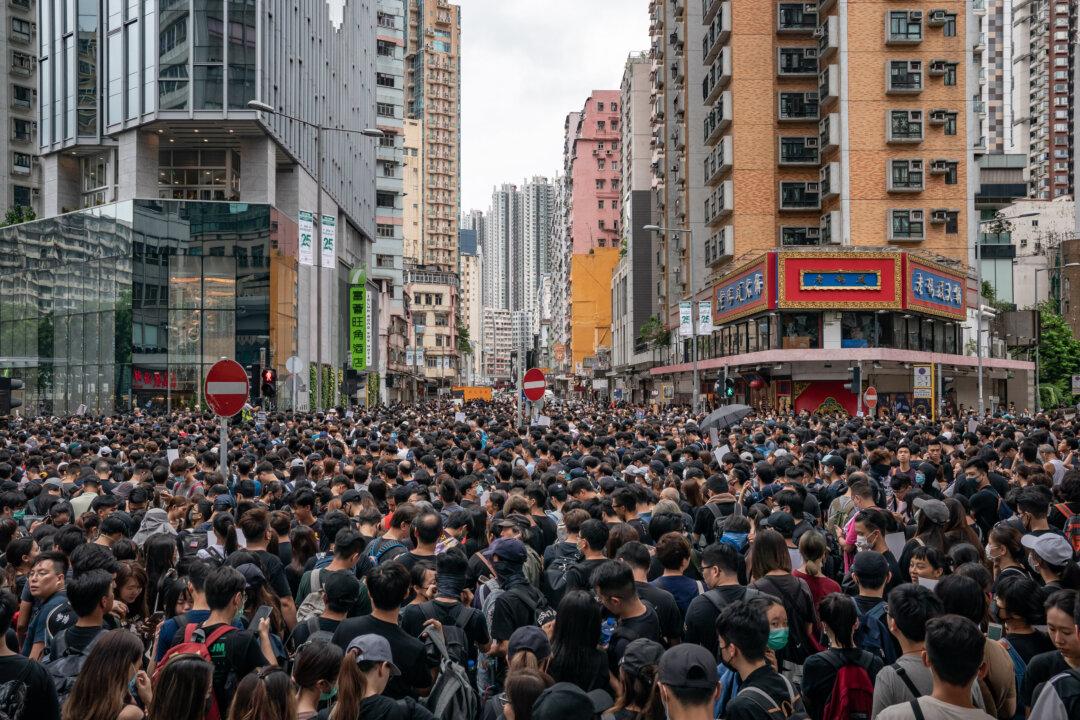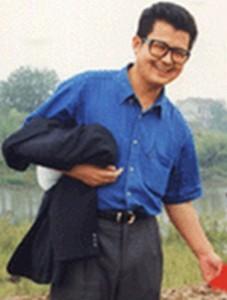HONG KONG — Villagers in the southern Chinese province of Guangdong have clashed with and detained local officials — including a township deputy chief — and hired laborers, after they caught them digging up recently buried dead bodies.
Several thousand residents around Liukou and Qinglongtou villages in the eastern part of the province blocked traffic Thursday after officicals and laborers arrived to exhume at least two bodies of recently deceased villagers, whose families couldn’t afford astronomical local burial fees.
“This morning more than 30 people came. The bodies had been buried for more than a month. They dug up two bodies—two, as far as we could tell. We moved in to surround them,” a Qinglongtou villager told RFA’s Mandarin service.
“They started beating us. But there were more of us—like three to one. Of course we did not allow them to beat us. So we detained them and refused to let them leave, including two Dongchong township government officials,” he said. Dongchong township administers the two villages. Police deny the incident
Asked to confirm that villagers had blocked local traffic and detained two officials, a police officer at the Dongchong township police station said: “No such thing happened. It wasn’t a big deal, just two people having a quarrel.”
“Don’t listen to whatever nonsense they come up with. It was probably a traffic accident that attracted onlookers,” he added.
But other residents confirmed that roads around the villages were completely blocked. “Liukou villagers are blocking the roads with huge water pipes. Cars can’t pass,” one resident told Hong Kong-based reporter Ding Xiao.
Authorities around the port city of Shanwei, where Liukou and Qinglongtou villages are located, began collecting burial fees in 1997 for traditional family grave sites, which in southern China can take up highly prized hillside locations with good geomancy, or feng shui.
Often visited at important festivals during the Chinese lunar calendar, family grave sites form an important part of ancestor rituals linked to Confucian values of filial piety and represent strong ties to the ancestral homeland sometimes dating back centuries.
Amounts are not stipulated by law, and fees vary widely, with plots in Qinglongtou village selling for between 10,000 and 20,000 yuan (U.S.$2,500), residents said. Burial plots in other areas around Shanwei can be had for as little as 3,000 yuan (U.S.$370).
“If you don’t pay the burial fee, they will dig you up, just like what happened today,” one villager said.
Documents Said to Have Been Signed
Residents said the families of the exhumed had demanded 25,000 yuan to pay for re-burial expenses during the confrontation, and a written agreement was drafted and signed, but officials refused to read out the document to the assembled villagers.
“Villagers demanded that government guarantor read out loud terms of the agreement,” one resident said. “But he was afraid to and refused. And so the villagers refused to let them go. As of 9:00 p.m., the roads leading to Qinglongtou village had been cleared. As for Liukou village, they wanted to wait and see.”
Other villagers also voiced angry complaints at government interference in an age-old custom.
“What right do they have to collect burial fees? ...Our custom is not to cremate the dead. Children cannot do this to their parents. Sometimes, if someone can’t afford the burial fee, they bury the body at night without letting the authorities know,” another resident told RFA.
China’s countryside has seen a wave of bitter land disputes in recent years between farming communities and local officials keen to cash in on skyrocketing property values.
Original reporting in Mandarin by Ding Xiao. RFA Mandarin service director: Jennifer Chou. Written by Luisetta Mudie and edited by Sarah Jackson-Han.

